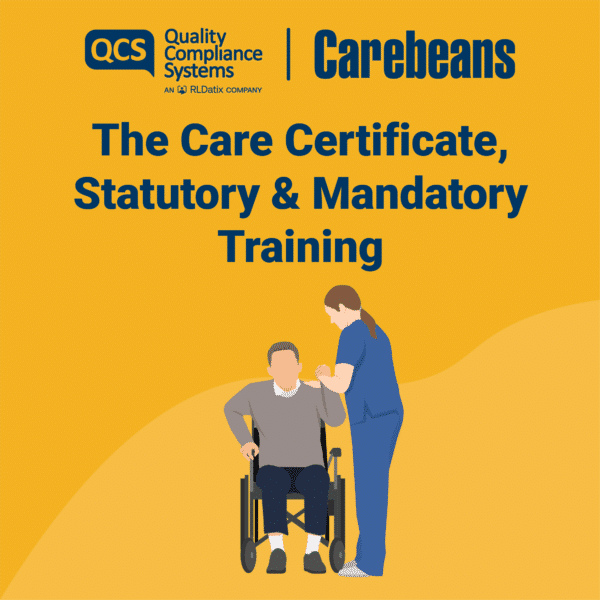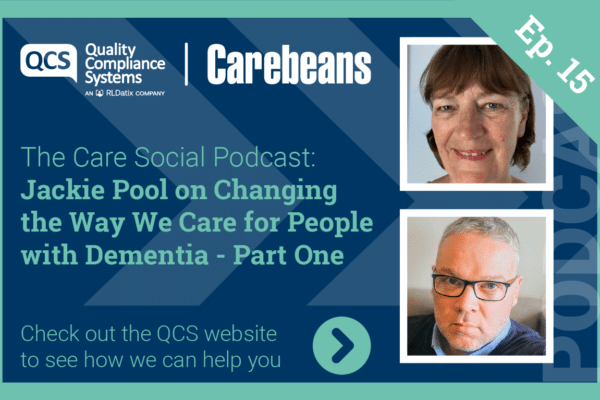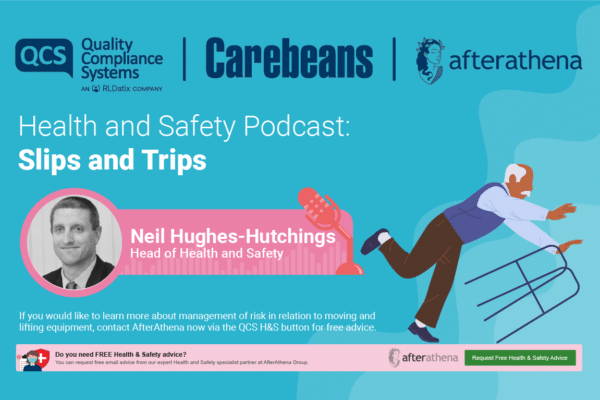The Care Certificate
The Care Certificate Standards were released in 2015 following an inquiry by the then Secretary of State to review and make recommendations on ensuring that the health and social care workforce were best placed to provide compassionate care. Fifteen Care Certificate Standards were created as a benchmark for providers to ensure a robust and in-depth training program for staff. An updated version of the Care Certificate standards was released in March 2025, to include an additional 16th standard which requires staff to demonstrate an awareness of learning disability and autism as well as expansion of the original standards.
Statutory Training – covers the legal obligation by providers to cover basic training that meet legislative requirements, such as the Health and Safety at Work Act 1974 or the Health and Social Care Act 2008 (Regulated Activities) Regulations 2014. Staff need to understand their duties fulfil the requirements of their role and work within the parameters outlined in legislation.
Mandatory Training – is training that the provider deems appropriate and necessary for staff to have in to make sure that they can carry out the nuances of their roles effectively. For instance, if your organisation provides a service to people with dementia you would need to provide and evidence that you offer suitable training in sufficient depth to the relevant staff to support those individuals.
The Care Certificate Standards are the benchmark on which you should base your fundamental training. All new staff should complete the Care Certificate and staff with experience in the sector should be able to reference the standards and the principles outlined in them. They are the basis for good practice in care and support.
Is all mandatory training the same for each staff member and provider?
No, training may differ according to the role and responsibilities. Different providers also provide different services and so the training that they offer will vary. The main rule of thumb is to offer training that covers the Care Certificate Standards and then bespoke, more in depth training that relates to the individuals that you support. Parkinson’s training if you have people with Parkinson’s for example, in depth stoma care training when you support people with their stomas, and so on. Developing your staff skills set is essential and your training must reflect the needs of the people you support, making sure that your staff are best placed to deliver the service.
How often should mandatory training take place?
This is topic dependent, in some areas there are requirements of ‘at least every 3 years’ which offer flexibility, but other topics will benefit from an annual refresher.
Does mandatory training just take place when the cycle comes around?
Not necessarily, training may need to be brought forward because:
- Specific staff members have been identified as needing a refresher (due to competency issues)
- Best practice and legislation changes may have occurred. It is important that these are shared and learning updated
- Changes to risks. These could be changes to the physical building, people supported, staff or events. Training may need to be adapted to address the issues
How should we carry out mandatory training?
- You should present learning in a way that meets your employees’ learning needs, you may offer training in a mixture of face to face and online
Mandatory and Core Training: What social care providers need to know.
- Always ensure learning is understood by assessing staff on what they have learnt
- Reflective practice should be embedded as part of your training learning program, at QCS we have a handy Reflective Learning Record
- In house training can often be helpful as you know the service and the individuals you support
- If you go to a learning provider, make sure they can prove their training is successful and meets, measures and monitors core objectives – attend a course yourself first so you understand how it is delivered
How can I Monitor Mandatory Training?
- Assess the training needed for your service. A good place to start is the Skills for Care Care Certificate standards against the profile of your service, they also have a self-assessment that experienced staff can complete which demonstrates their understanding in these areas and provides an opportunity to highlight themes that they may need or want refreshing
- Using a Training Matrix to map out the training each member of staff needs to undertake and when. This will enable you to prompt staff and to audit the process for the organisation, and to evidence to the regulator and commissioners the training that has taken place
- Completing staff competencies and working observations will highlight any areas of immediate need making sure that you have a skilled, competent, and confident team
At QCS we have a wide range of products to support mandatory training including policies and procedures, our fully loaded resource centre that offers bitesize training materials including videos and audio, as well as educational documentation – we also have an audit centre to help you stay on track!
We help you to stay on track so that you can spend more time on what is important, keeping you, your team and the people you support safe and compliant with the regulations.





